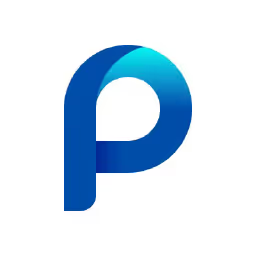TaskDrive Alternatives
A comparison of 10 TaskDrive alternatives. The guide reviews features, pricing, and service models to help you find a replacement.
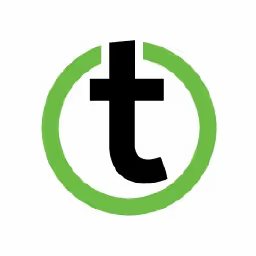
You might have used TaskDrive for specific lead generation needs. It performs well in areas like personalized lead research and data enrichment. This helps free up your teams from time-consuming tasks so they can focus on hitting their targets.
However, some users note limitations like time zone differences or slow procurement speed. This might lead you to seek alternatives. We've analyzed top options based on G2 reviews, comparing their pros and cons to TaskDrive to help you shortlist. Let's get started.
Consider 11x for Your Sales Team
If your sales team needs to automate tasks, consider 11x. The platform provides digital workers for sales development. This approach frees your staff to focus on deal closure and client relationships.
11x is an integrated GTM platform where our AI agents handle the sales process. One agent, Alice, finds prospects, runs outreach via email and LinkedIn, and keeps the CRM current.
Another agent, Julian, qualifies inbound leads and books meetings. This approach replaces separate tools for data enrichment, outreach, or email warmup by unifying them into a single platform.
TaskDrive Alternatives
Here is a detailed breakdown of the top TaskDrive alternatives. We will examine each option's pricing, features, and specific advantages or drawbacks when compared to TaskDrive.
1) UpLead
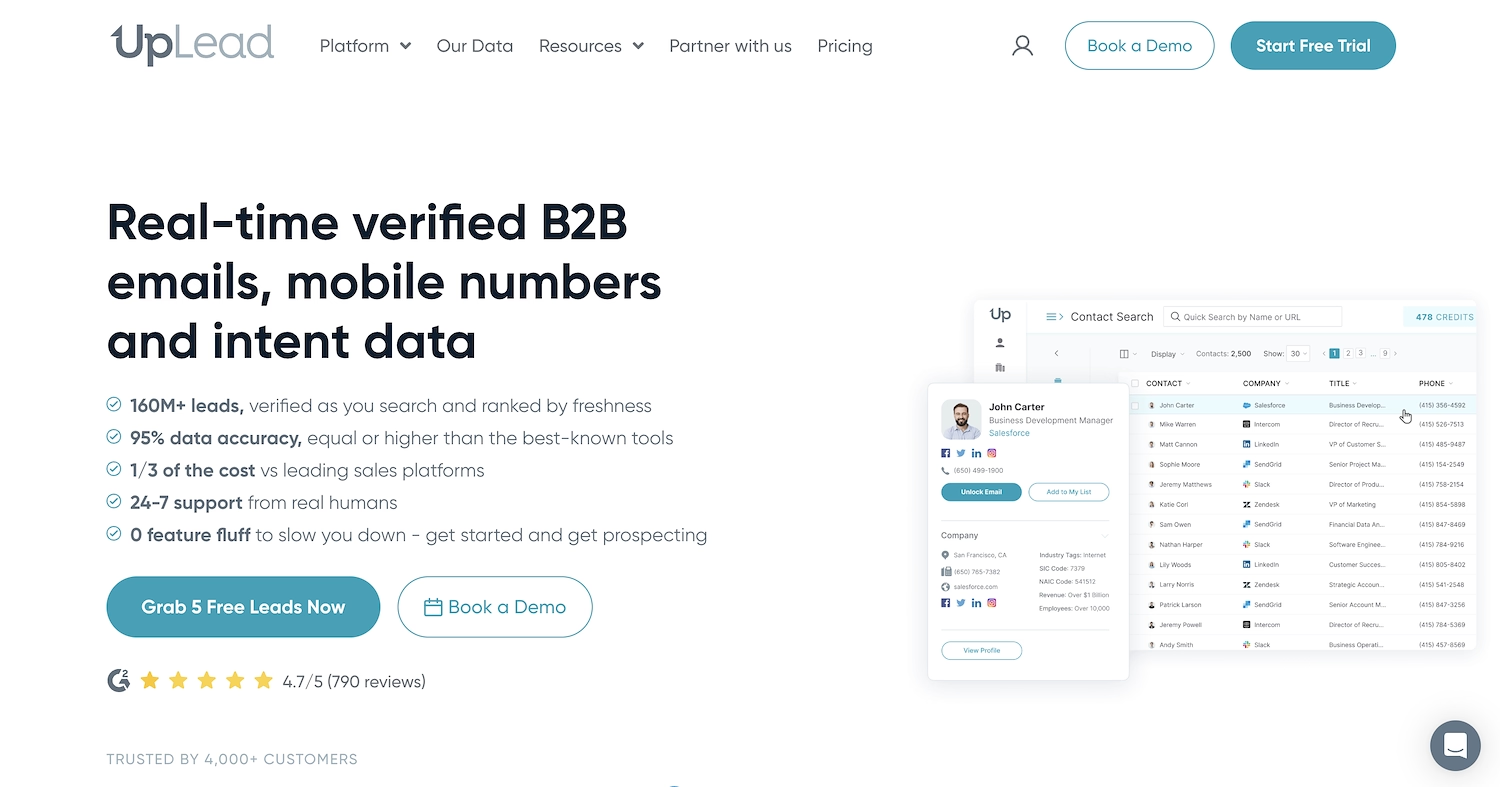
UpLead is a B2B lead generation platform with data for over 160 million contacts. It provides real-time verified emails, mobile numbers, and buyer-intent data. The company guarantees 95% data accuracy. Teams can build prospect lists with more than 50 search filters.
The platform also enriches CRM records with over 40 data points to prevent stale data. It uses intent signals to identify in-market accounts and help prioritize outreach efforts.
UpLead's Main Features
- Identifies in-market accounts through intent signals to help prioritize outreach efforts.
- Tracks over 16,000 technology installs per company to allow for tailored messaging.
- Supplies mobile and direct office numbers to support higher connect rates on calls.
- Offers a REST API for programmatic search, enrichment, and verification at scale.
How UpLead Compares to TaskDrive
Average Review score: 4.7/5 stars based on 797 G2 reviews.
- UpLead provides a self-service platform, giving you direct access to its database. This offers more control compared to TaskDrive's managed service approach.
- It comes with a 95% data accuracy guarantee. This provides a specific reliability benchmark, a feature not publicly stated for TaskDrive's service.
- The tool includes buyer-intent data to find accounts actively looking for solutions. This allows for more timely outreach than the general lead research TaskDrive provides.
- Its platform offers real-time email verification. This instant check helps maintain data quality and differs from TaskDrive's process, which may involve a turnaround time.
UpLead's Limitations Compared To TaskDrive
- UpLead is a self-service platform, which means your team does the lead research. This is different from TaskDrive's managed service, where their team handles these tasks for you.
- The tool provides access to a large database for lead generation. This differs from TaskDrive's personalized research service, which may offer more tailored lists for complex needs.
- Some users report that UpLead's database can sometimes contain outdated contacts. In contrast, TaskDrive's human-led service model aims to verify information before it reaches you.
Pricing and Value Comparison
TaskDrive does not list public pricing, instead offering custom quotes for its managed services. In contrast, UpLead provides clear, tiered pricing for its self-service platform, with plans ranging from the $99 Essentials package to the $399 Professional plan, offering more predictable costs.
2) ZoomInfo SalesOS
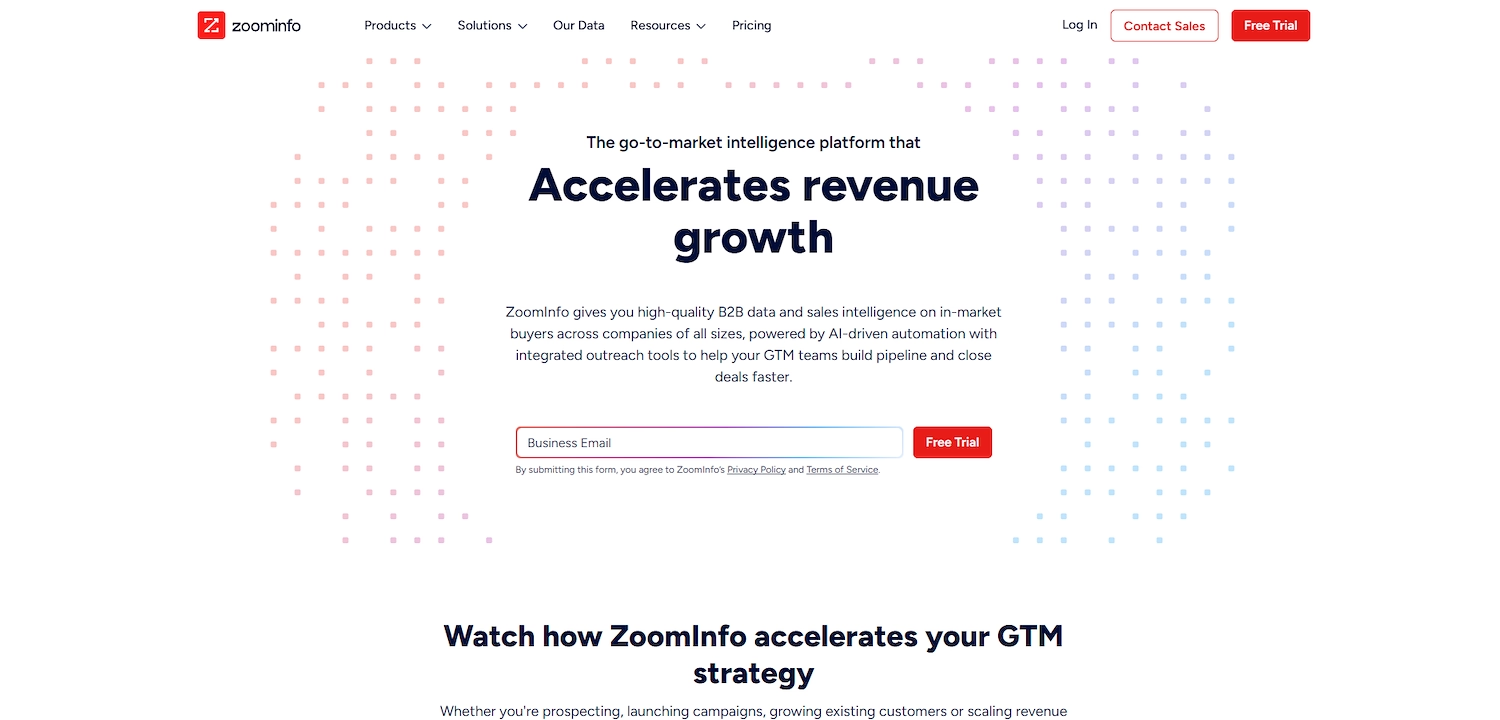
ZoomInfo SalesOS is a go-to-market intelligence platform for B2B organizations. It unifies company data, contact details, and buyer-intent signals into one system. This helps revenue teams identify and connect with potential buyers.
Teams use the platform to build lead lists with verified contact data. It also helps find in-market accounts to generate pipeline for sales and marketing departments.
ZoomInfo SalesOS's Main Features
- The platform uses real-time intent signals to identify prospects who are ready to buy.
- It automates phone and email outreach to connect with potential leads.
- Its conversation intelligence tool analyzes call and meeting interactions to provide insights.
- A generative-AI companion, Copilot, surfaces insights and drafts outreach messages.
How ZoomInfo SalesOS Compares to TaskDrive
Average Review score: 4.5/5 stars based on 8,738 G2 reviews.
- ZoomInfo SalesOS provides real-time buyer intent data to identify active prospects. This differs from TaskDrive's approach, which provides lists based on user-defined criteria rather than live market signals.
- It includes an AI companion, Copilot, to help draft outreach messages and guide sales actions. This adds a layer of automation that is not present in TaskDrive's human-managed research service.
- The platform automates email and phone outreach campaigns. This functionality extends beyond TaskDrive's service, which delivers lead lists but leaves the outreach execution to your team.
- Its conversation intelligence tool analyzes sales calls to find insights. This offers post-contact analysis, a feature outside the scope of TaskDrive's lead generation and data enrichment services.
ZoomInfo SalesOS's Limitations Compared To TaskDrive
- ZoomInfo SalesOS requires your team to manage lead research on its platform. This differs from TaskDrive's managed service, where a dedicated team handles the research process for you, which can save internal resources.
- The platform relies on a large, automated database, and some users report encountering outdated contact information. In comparison, TaskDrive's human-led research focuses on delivering custom-verified leads for specific needs.
- Its pricing model typically involves annual contracts and a significant investment. This structure can be less flexible than TaskDrive's approach, which may offer custom quotes tailored to specific project requirements.
Pricing and Value Comparison
TaskDrive does not list public pricing, offering custom quotes for its managed service. ZoomInfo SalesOS also operates on a custom quote basis, but its pricing typically involves annual contracts, suggesting a larger upfront investment. For the most accurate pricing information, visit the ZoomInfo SalesOS's official website.
3) Apollo.io
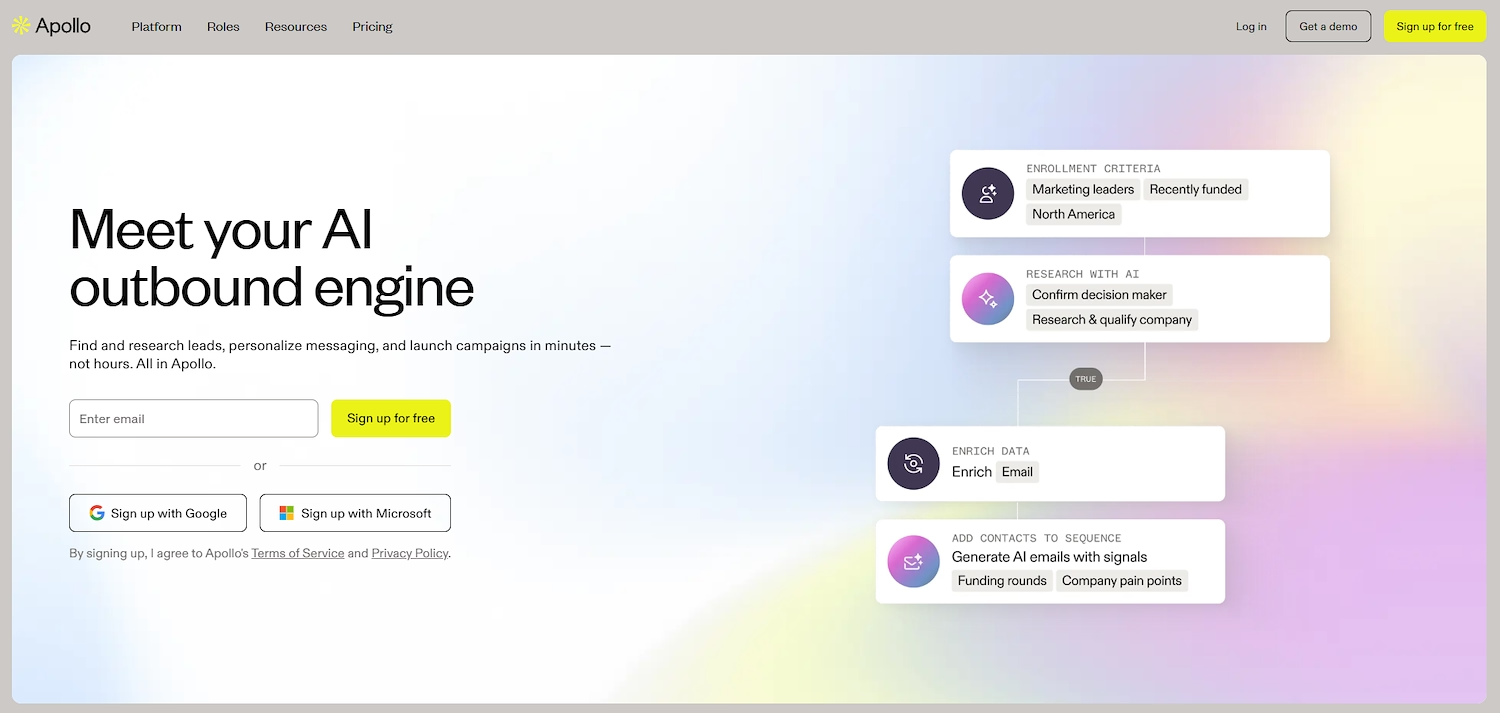
Apollo.io is a sales intelligence platform that functions as a TaskDrive alternative. It provides tools for sales teams to find and connect with prospects. Businesses use the platform to source contact data and manage outreach to potential customers.
Apollo.io's Main Features
- Provides access to a large database of B2B contacts and company information.
- Includes tools to build and automate outreach sequences across email and social platforms.
- Uses advanced filtering to help teams find prospects based on specific criteria.
How Apollo.io Compares to TaskDrive
Average Review score: 4.7/5 stars based on 8,904 G2 reviews.
- Apollo.io provides an integrated platform with a contact database and outreach automation tools. This differs from TaskDrive, which delivers lead lists for your team to act upon.
- It offers direct access to a database of over 210 million contacts. This self-service model gives your team more control compared to TaskDrive's managed research service.
- The platform includes an Engagement Suite to build and automate outreach sequences. This functionality extends beyond TaskDrive's service, which leaves engagement steps to your team.
- Apollo.io uses an Intelligence Engine for recommendations and analytics. This adds data-driven guidance, distinct from TaskDrive's human-led research approach.
- The tool offers a free plan and transparent tiered pricing. This provides predictable costs and a lower entry point compared to TaskDrive's custom quote model.
Apollo.io's Limitations Compared To TaskDrive
- Apollo.io is a self-service tool, which means your team must perform the lead research. This is different from TaskDrive's managed service, where their team handles the research for you.
- The platform uses a large, automated database, and some users report it contains outdated information. In contrast, TaskDrive's human-led research aims to deliver custom-verified leads for specific needs.
- Your team must learn to use the platform. This differs from TaskDrive's service, which delivers lists directly and may not require extensive internal training on a new tool.
Pricing and Value Comparison
TaskDrive uses a custom quote model, while Apollo.io offers transparent pricing with a free plan and paid tiers starting at $49 per user monthly. This makes Apollo.io a predictable option for various budgets, whereas TaskDrive's model fits custom, managed service needs. Check the detailed pricing of Apollo.io on Apollo.io's official website.
4) Cognism
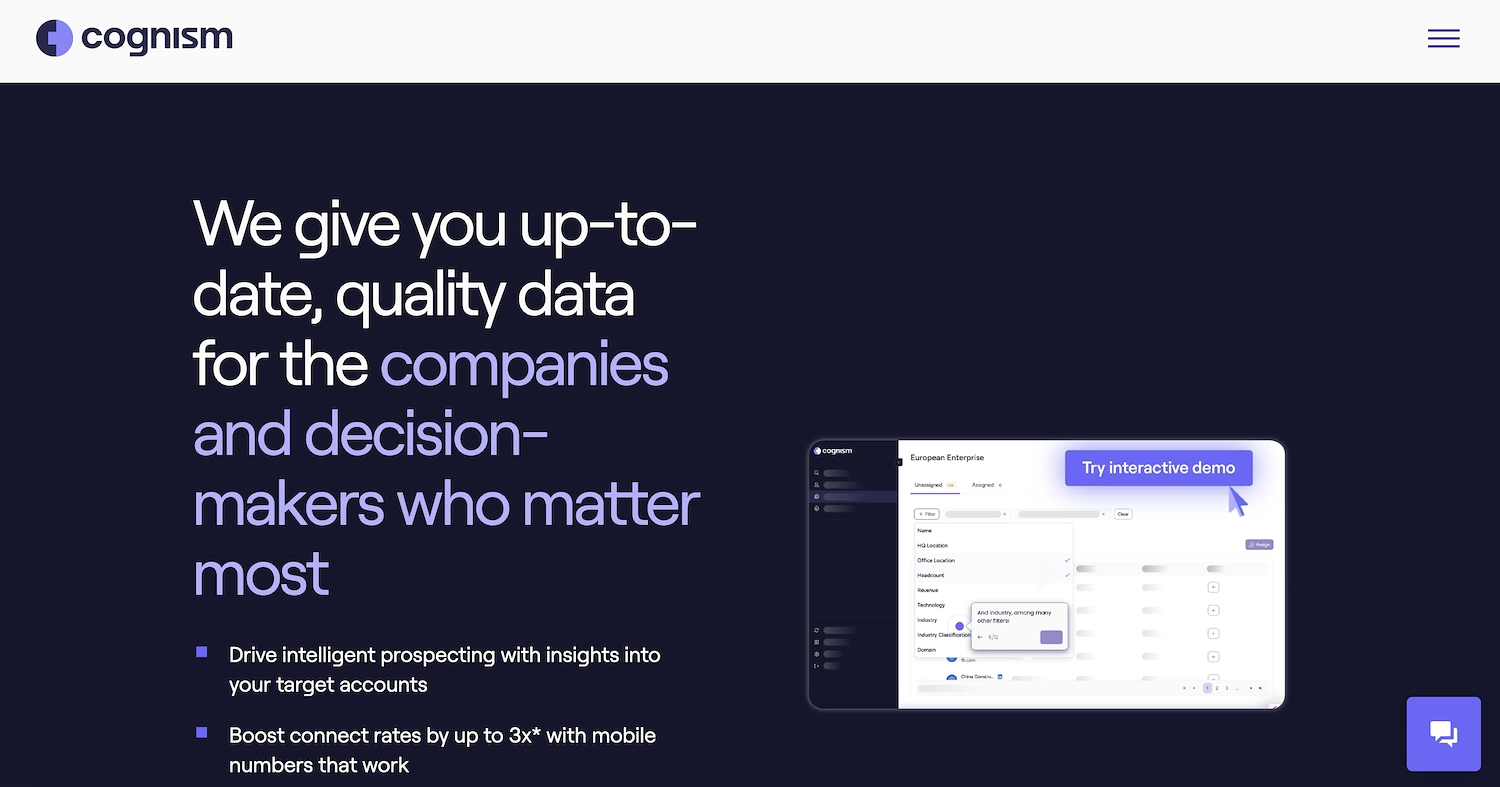
Cognism is a sales intelligence platform that provides verified B2B contact and company data. Sales and marketing teams use it to find prospects and build targeted outreach lists. The platform's data supports lead generation and helps revenue teams execute go-to-market strategies to connect with potential buyers.
Cognism's Main Features
- Provides phone-verified, human-checked mobile numbers, known as Diamond Data®, to increase connect rates.
- Offers extensive data coverage for contacts in the UK and EMEA regions.
- Identifies buying signals from hiring trends, funding rounds, and technographic changes.
- Maintains a database of senior decision-makers screened against Do-Not-Call lists for compliant outreach.
How Cognism Compares to TaskDrive
Average Review score: 4.6/5 stars based on 1,033 G2 reviews.
- Cognism provides phone-verified mobile numbers, known as Diamond Data®, to help increase call connection rates. This differs from TaskDrive's general lead research service.
- It identifies buying signals from hiring trends and funding rounds to find timely opportunities. This proactive approach is different from TaskDrive, which builds lists based on client criteria.
- The platform offers extensive data coverage for contacts in the UK and EMEA regions. This provides a regional data strength compared to TaskDrive's project-based research model.
- Its database is screened against global Do-Not-Call lists to support compliant outreach, a specific feature not publicly detailed for TaskDrive's service.
Cognism's Limitations Compared To TaskDrive
- Cognism operates as a self-service platform, requiring your team to handle all lead research internally. This contrasts with TaskDrive's managed service, which performs the research for you and can save your team's time.
- The platform's large database may not suit highly niche or complex research projects. TaskDrive, by comparison, offers a personalized research service that can build more specific lists for unique requirements.
- Some users find that the automated database can occasionally provide outdated contact details. TaskDrive's service model, however, involves human verification for each project to ensure data is current upon delivery.
Pricing and Value Comparison
Like TaskDrive, Cognism operates on a custom pricing model rather than public tiers. While we've covered key features and use cases in this comparison, pricing models can vary significantly between tools. For the most accurate and up-to-date pricing information, we recommend visiting Cognism's official website.
5) Lusha
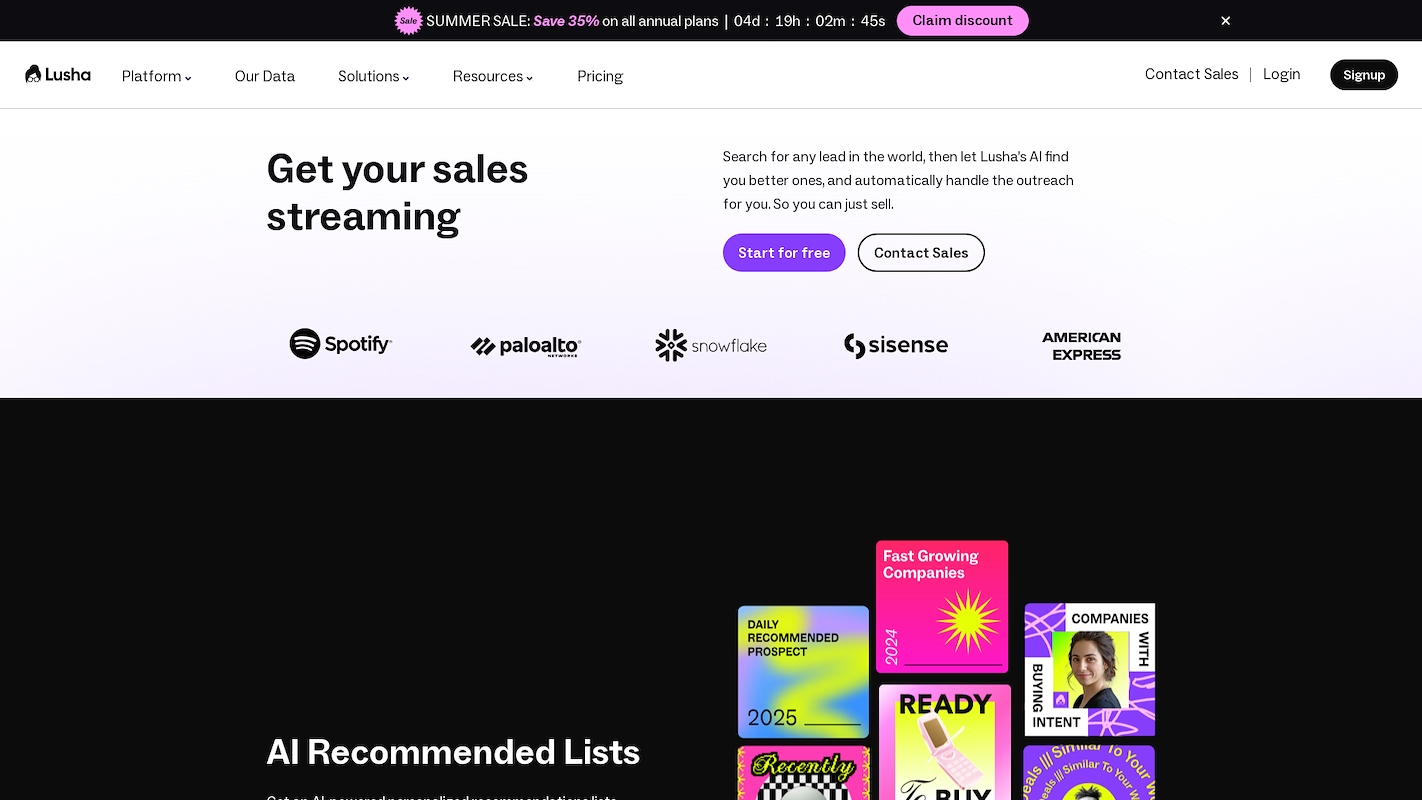
Lusha is a sales intelligence platform that provides B2B sales teams with contact and company data. Professionals use the tool to find phone numbers and email addresses for prospects. This helps them connect with potential buyers and support their go-to-market strategies and outreach campaigns.
Lusha's Main Features
- Generates daily, ICP-based lists of companies and decision-makers and provides live, auto-updating lead lists.
- Identifies in-market buyers using intent signals and sends real-time notifications on triggers like funding rounds.
- Automates and personalizes email sequences with AI-driven copy to engage prospects.
- Records and analyzes sales meetings to provide insights into conversations.
How Lusha Compares to TaskDrive
Average Review score: 4.3/5 stars based on 1,516 G2 reviews.
- Lusha uses AI Prospect Playlists to automatically create and update lead lists. This automated approach differs from TaskDrive's service, where a team manually builds a list for a specific request.
- It identifies in-market buyers with intent signals and sends real-time alerts. This provides timely opportunities, unlike TaskDrive, which builds lists based on predefined client criteria.
- The platform automates and personalizes email sequences with AI-driven copy. This extends its function beyond TaskDrive, which focuses only on providing the lead list and leaves outreach to your team.
- This tool records and analyzes sales meetings to offer conversation insights. This feature provides post-contact analysis, an area not covered by TaskDrive's lead research services.
Lusha's Limitations Compared To TaskDrive
- Lusha is a self-service platform, so your team must perform the lead research. This differs from TaskDrive's managed service, where their team handles these tasks for you, which can save your team's time.
- The platform's credit system can limit the number of contacts you access. This is different from TaskDrive's project-based service, which delivers a complete list based on your requirements without per-contact credit caps.
- Some users report issues with two-way CRM data sync, which can require manual updates. TaskDrive provides a data file for a controlled, one-time import, which can simplify data management.
Pricing and Value Comparison
TaskDrive uses a custom quote model for its managed service, while Lusha offers transparent pricing with a free plan and paid tiers starting at $36 per user monthly. This makes Lusha a predictable option for teams managing their own research, with more details available on Lusha's official website.
Ready to Try 11x?
If your team is ready to use digital workers for sales, 11x provides a unified platform. Its AI agents manage prospecting, outreach, and lead qualification. This lets your sales staff concentrate on closing deals. You can explore how it works on their website.
With 11x, we use AI to manage the sales process. Our agent Alice finds accounts and runs outreach, while Julian qualifies leads and books meetings. This approach unifies tools for intent data and email warmup into one platform, removing the need for extra software.
Book a demo to see how 11x can work for you.
6) Seamless.AI
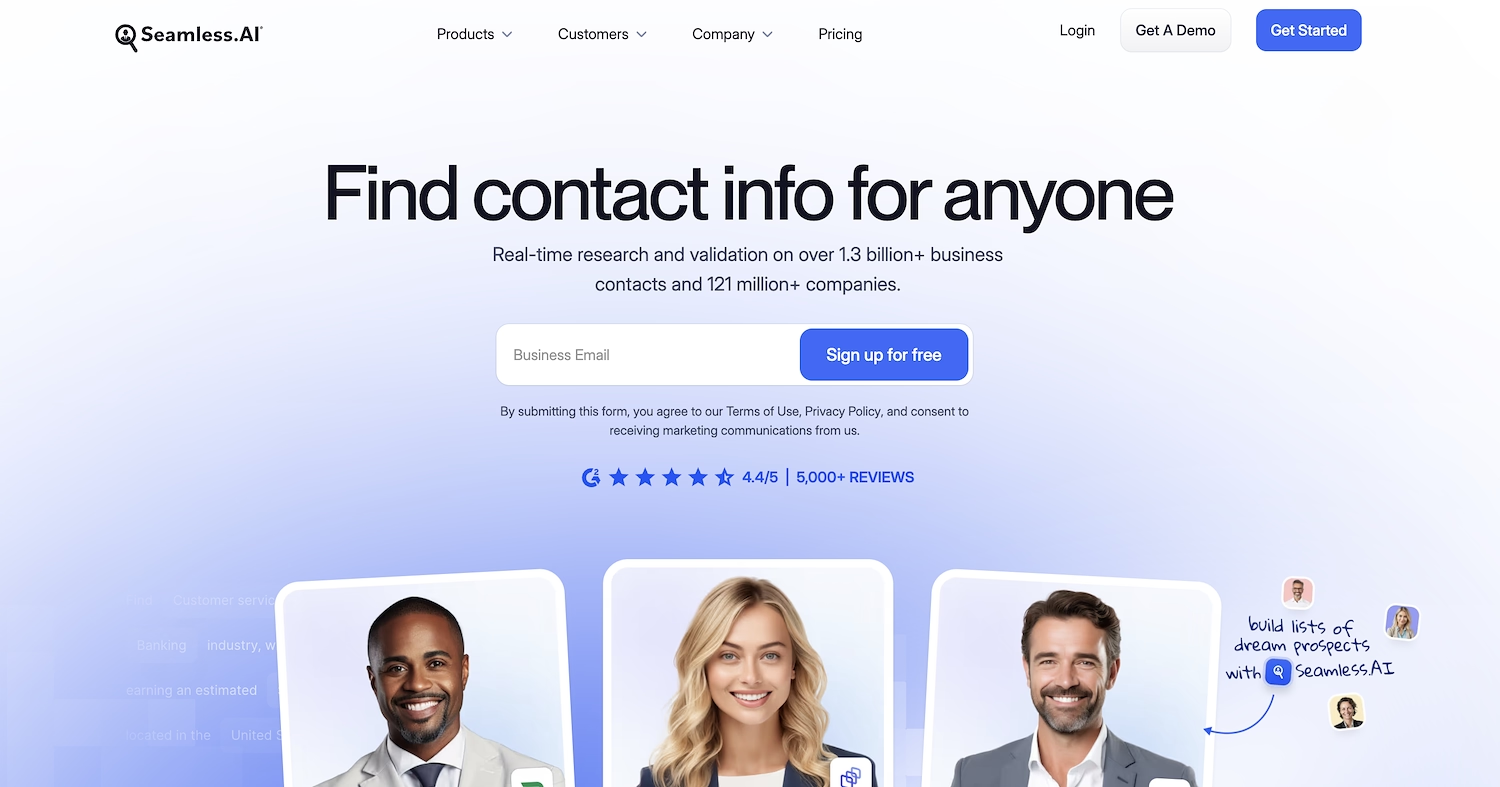
Seamless.AI is a sales intelligence platform that helps B2B teams find and connect with prospects. The tool provides access to company and contact data. Sales professionals use this information to build lead lists and support their go-to-market outreach efforts.
Seamless.AI's Main Features
- Surfaces prospects who are ready to buy using buyer intent data.
- Monitors job changes for customers and prospects and automatically delivers new contact information.
- Generates research and personalized messages using its AI pitch intelligence.
- Automates the list-building process to keep the sales pipeline full.
How Seamless.AI Compares to TaskDrive
Average Review score: 4.4/5 stars based on 5,067 G2 reviews.
- Seamless.AI provides buyer intent data to find prospects who are actively looking for solutions. This differs from TaskDrive, which builds lists based on your defined criteria instead of real-time market signals.
- The tool monitors job changes for your contacts and automatically provides their new information. This automated tracking contrasts with TaskDrive's project-based research, which captures data at a single point in time.
- It uses AI to generate research and personalized outreach messages. This adds an automation layer for content creation, a step your team handles after receiving a list from TaskDrive.
- Seamless.AI functions as a real-time search engine, giving your team direct access to find contacts instantly. This self-service model offers more immediate control compared to TaskDrive's managed service, which has a turnaround time for research.
Seamless.AI's Limitations Compared To TaskDrive
- Seamless.AI is a self-service platform, which requires your team to perform lead research. This differs from TaskDrive's managed service, where a dedicated team handles the research process for you, saving internal resources.
- Some users report that the platform's automated database can sometimes provide outdated contact information. In contrast, TaskDrive's service model involves human verification for each project to ensure data is current upon delivery.
- The platform is designed for broad searches and may not be ideal for highly niche or complex research projects. TaskDrive, however, offers a personalized research service that can build more specific lists for unique requirements.
Pricing and Value Comparison
TaskDrive and Seamless.AI both operate on a custom pricing model, providing quotes based on specific needs. For the most accurate and up-to-date pricing information, we recommend visiting the Seamless.AI's official website.
7) LeadIQ
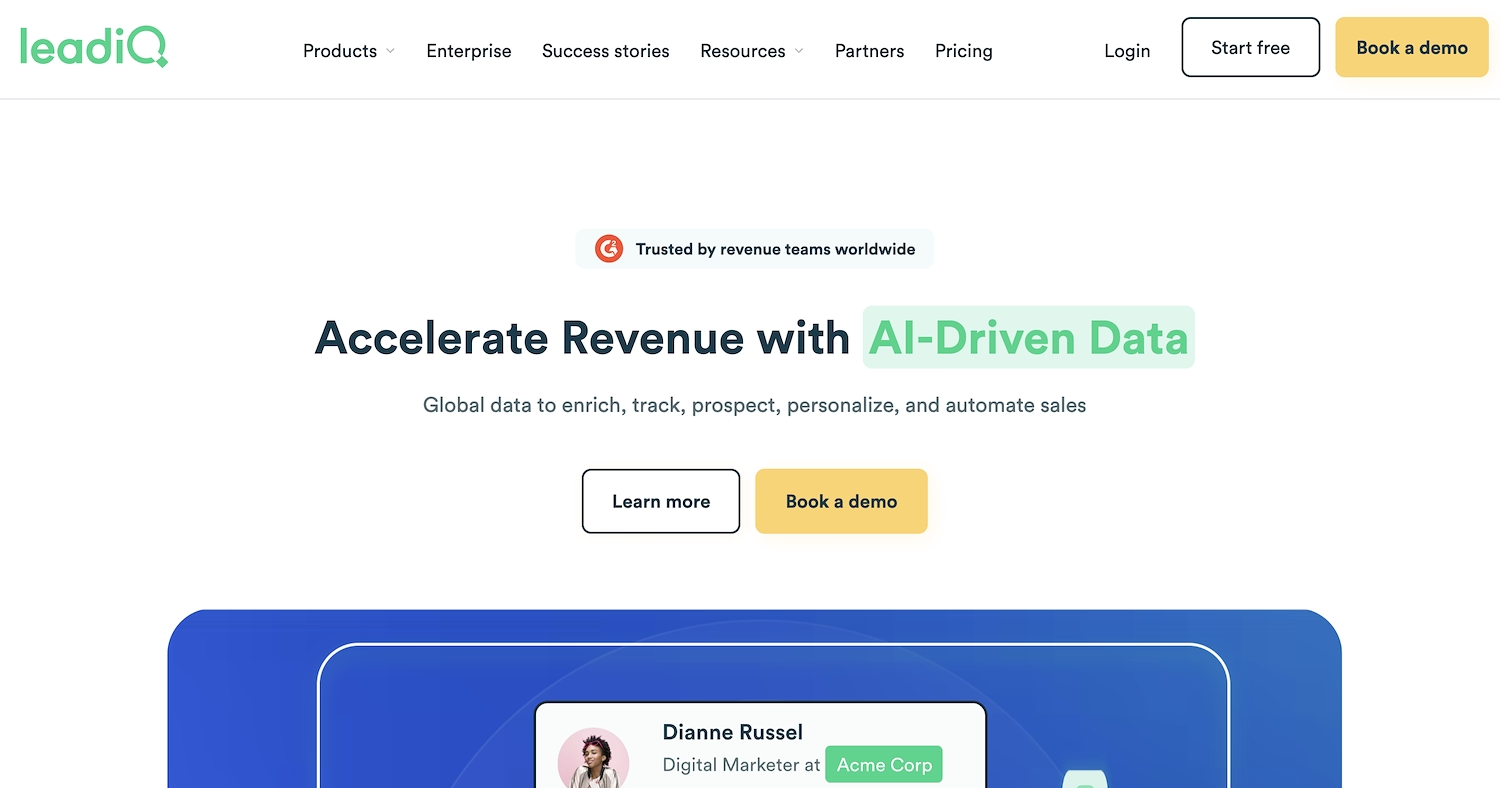
LeadIQ is a sales prospecting platform for teams to find contact data. Sales professionals use the tool to build lead lists with verified emails and phone numbers. The system captures information from social profiles and websites to support outreach campaigns and fill the sales pipeline.
LeadIQ's Main Features
- Generates personalized outreach messages using an AI tool called Scribe.
- Tracks job changes of contacts and sends alerts when they move to new companies.
- Captures contact data from LinkedIn with one click and syncs it to CRMs like Salesforce and HubSpot.
- Enriches CRM data in bulk with customizable field mapping to keep records current.
How LeadIQ Compares to TaskDrive
Average Review score: 4.2/5 stars based on 1,097 G2 reviews.
- LeadIQ includes an AI tool, Scribe, to help generate personalized outreach messages. This differs from TaskDrive, which provides the lead list but leaves message creation to your team.
- The platform tracks job changes for your contacts and sends alerts with their new information. In contrast, TaskDrive delivers a static list that captures data at a single point in time.
- It allows you to capture contact data from LinkedIn with one click and sync it directly to your CRM. This offers a more immediate workflow than TaskDrive's managed research request process.
- The tool offers bulk data enrichment for your CRM with customizable field mapping. This is different from TaskDrive's service, which provides a data file for a one-time import.
LeadIQ's Limitations Compared To TaskDrive
- LeadIQ requires your team to manage the research process. This differs from TaskDrive's managed service, which provides a dedicated team for complex or highly specific research projects.
- Some users report that its automated database can provide inaccurate contact details. In contrast, TaskDrive's service model includes human verification for each project to ensure data is current upon delivery.
- The tool primarily captures contact data from online profiles. For research that requires deeper, customized information, TaskDrive's manual research service may offer more tailored results.
Pricing and Value Comparison
TaskDrive uses a custom quote model, while LeadIQ offers transparent pricing with a free plan and paid tiers starting at $45 per user monthly. This makes LeadIQ a predictable option for teams that manage their own research, whereas TaskDrive's model is better suited for custom, project-based service needs.
8) Hunter
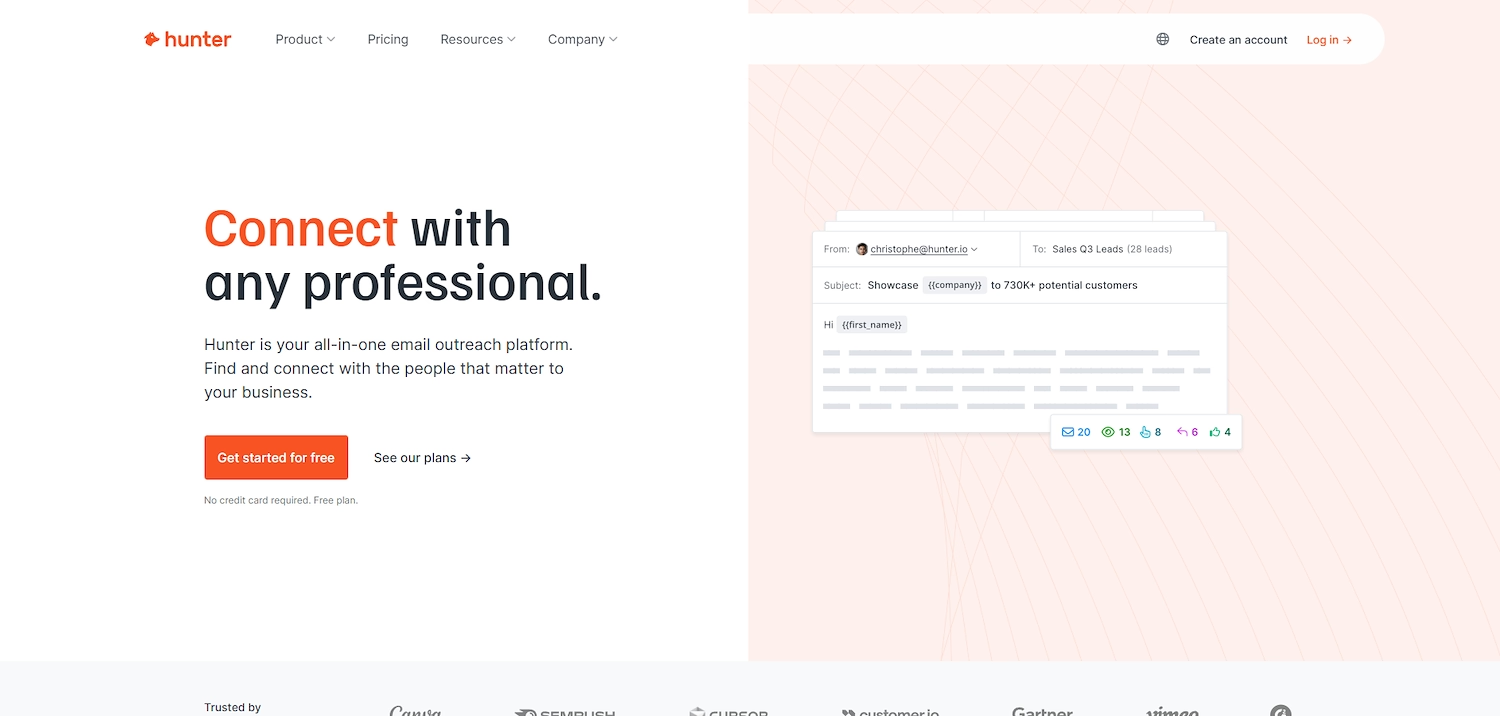
Hunter is a tool to find professional email addresses. Businesses use it to discover contact information for people at other companies. The platform has a domain search function that provides emails. This supports sales and marketing teams with list creation for outreach campaigns.
Hunter's Main Features
- Finds and verifies professional email addresses by crawling public web sources.
- Includes a cold email platform to send outreach campaigns directly from the tool.
- Uses data filtering to help identify leads that match an ideal customer profile.
- Integrates with CRM and marketing automation platforms to sync contact data.
How Hunter Compares to TaskDrive
Average Review score: 4.4/5 stars based on 592 G2 reviews.
- Hunter includes a built-in platform to send cold email campaigns. This differs from TaskDrive, which provides lead lists but requires your team to use separate tools for outreach.
- It finds and verifies email addresses by crawling public web sources. This automated approach provides instant results, unlike TaskDrive's managed service, which has a turnaround time for human-led research.
- The tool offers a free plan and transparent, tiered pricing. This provides predictable costs, which is different from TaskDrive's custom quote model for its managed service.
- Its platform integrates with CRM systems to sync contact data directly. This offers a more automated workflow than TaskDrive, which delivers a data file for you to import.
Hunter's Limitations Compared To TaskDrive
- Hunter specializes in finding professional email addresses. This is narrower than TaskDrive's service, which provides comprehensive lead profiles with custom data points tailored to specific campaign needs.
- The tool works well for finding emails at a specific company. It may be less effective for complex research projects that require building a list from scratch based on a detailed ideal customer profile, a task TaskDrive's human-led service is designed for.
- Its data is limited to publicly available contact information. This differs from TaskDrive, where human researchers can gather qualitative details or other specific business intelligence that automated tools typically miss.
Pricing and Value Comparison
TaskDrive provides custom quotes for its managed research service. Hunter uses a transparent, tiered model with a free plan and paid options starting at $49 per month, offering predictable costs for teams managing their own email searches.
9) Snov.io
Snov.io is a sales automation platform. Teams use it to find and verify email addresses and manage outreach campaigns. The tool helps users connect with prospects and automate parts of the sales process.
Snov.io's Main Features
- Finds and verifies professional email addresses from various online sources.
- Includes a tool for creating and sending automated email drip campaigns.
- Offers a free sales CRM to manage leads and deals within the platform.
- Integrates with other business tools to sync contact and lead data.
How Snov.io Compares to TaskDrive
Average Review score: 4.5/5 stars based on 361 G2 reviews.
- Snov.io includes a built-in CRM and email outreach tools. This provides an all-in-one solution, while TaskDrive delivers lead lists for your team to use with other software.
- It offers a self-service platform for instant access to data and tools. This differs from TaskDrive's managed service, which involves a turnaround time for human-led research projects.
- The platform provides tools for automated email drip campaigns. This extends beyond TaskDrive's service, which focuses on lead list delivery and leaves outreach execution to your team.
- Snov.io has transparent pricing with a free plan available. This offers predictable costs, unlike TaskDrive's custom quote model for its managed service.
Snov.io's Limitations Compared To TaskDrive
- Snov.io is a self-service tool, meaning your team must conduct the research. This is different from TaskDrive's managed service, where their team handles the research for you.
- The platform's automated data collection may not be ideal for complex research. TaskDrive's human-led service can provide more tailored lists for highly specific or niche requirements.
- Some users report that the email verification tool can sometimes be inaccurate. In contrast, TaskDrive's service model aims to deliver human-verified data for each project.
Pricing and Value Comparison
TaskDrive provides custom quotes for its managed service. Snov.io offers a transparent, tiered model with a free plan and paid options starting at $39 per month. This makes Snov.io a predictable choice for teams managing their own outreach.
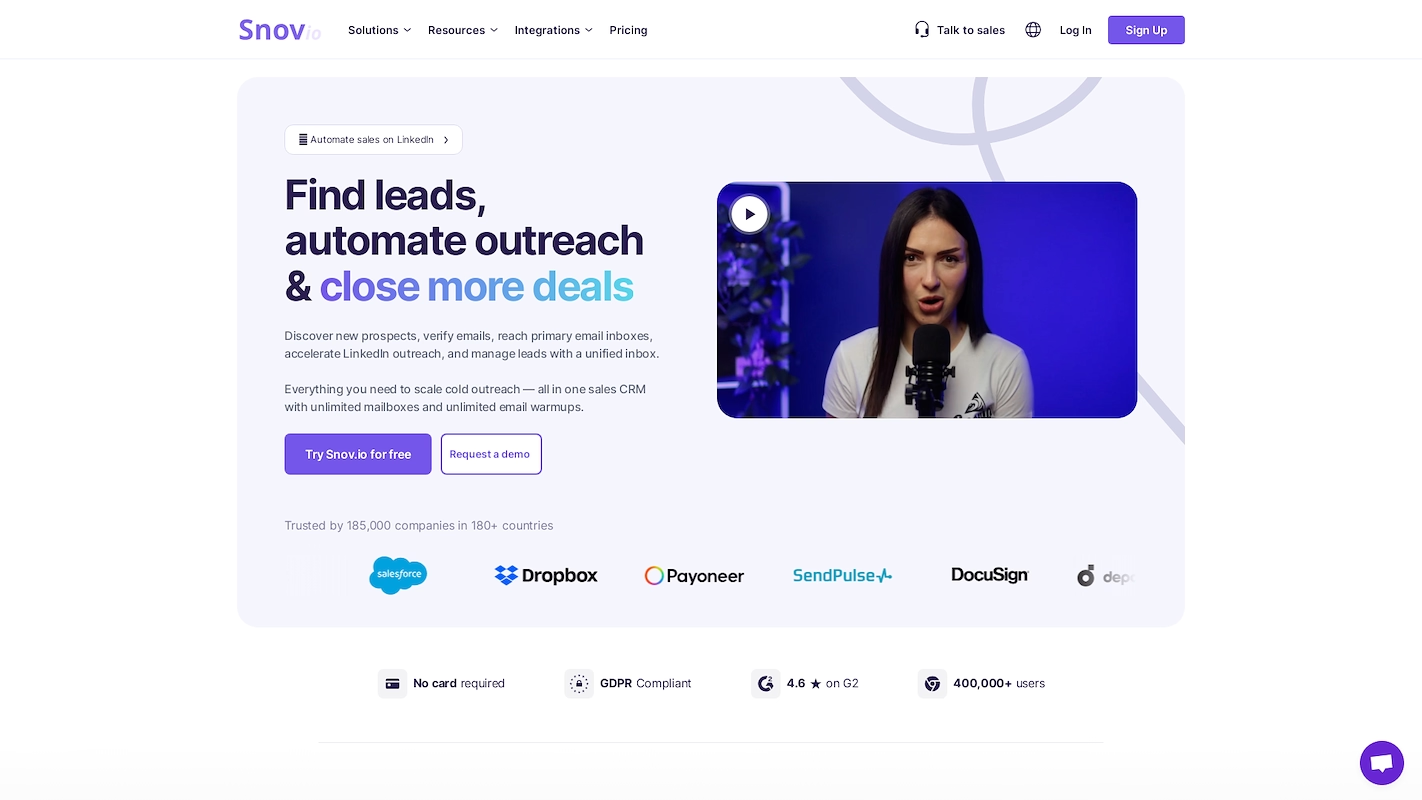
Snov.io is a sales automation platform that includes a sales CRM. Teams use it to find and verify email addresses, manage automated email campaigns, and track deals. These functions help users connect with prospects and manage the sales process within a single tool.
Snov.io's Main Features
- Manages contacts, accounts, opportunities, and the sales pipeline.
- Automates sales force tasks and manages leads through marketing automation.
- Provides reporting and analytics through performance dashboards.
How Snov.io Compares to TaskDrive
Average Review score: 4.6/5 stars based on 450 G2 reviews.
- Snov.io provides an all-in-one platform with a built-in sales CRM to manage contacts, accounts, and the sales pipeline. This differs from TaskDrive, which delivers a lead list that your team must then import and manage in a separate CRM.
- The platform automates sales tasks and lead management through its marketing automation features. In contrast, TaskDrive's service ends with lead delivery, and your team must handle all subsequent activities with other tools.
- It offers performance dashboards with reports and analytics on sales activities. This gives direct insight into campaign effectiveness, a feature not included with TaskDrive's lead research service.
- This tool gives your team direct access to find and engage leads through its platform. The self-service approach offers more control compared to TaskDrive's managed service, which has a research and delivery timeline.
Snov.io's Limitations Compared To TaskDrive
- The platform's all-in-one nature includes a built-in CRM. This can be restrictive if your team prefers a different CRM, whereas TaskDrive delivers a data file compatible with any system.
- Snov.io's automated system provides standard contact and company data. TaskDrive's manual research can find custom data points and qualitative insights that automated tools often miss.
- Your team must learn and manage the entire Snov.io platform. In comparison, TaskDrive handles the research component, which lets your team focus on outreach and deal closure.
Pricing and Value Comparison
TaskDrive provides custom quotes for its managed service. Snov.io offers both self-service plans, starting at $39 per month, and a managed service option for $3,999 per month. This gives users a choice between predictable self-service costs and a fixed-price managed plan, whereas TaskDrive's pricing is tailored to each project.
10) Lead411
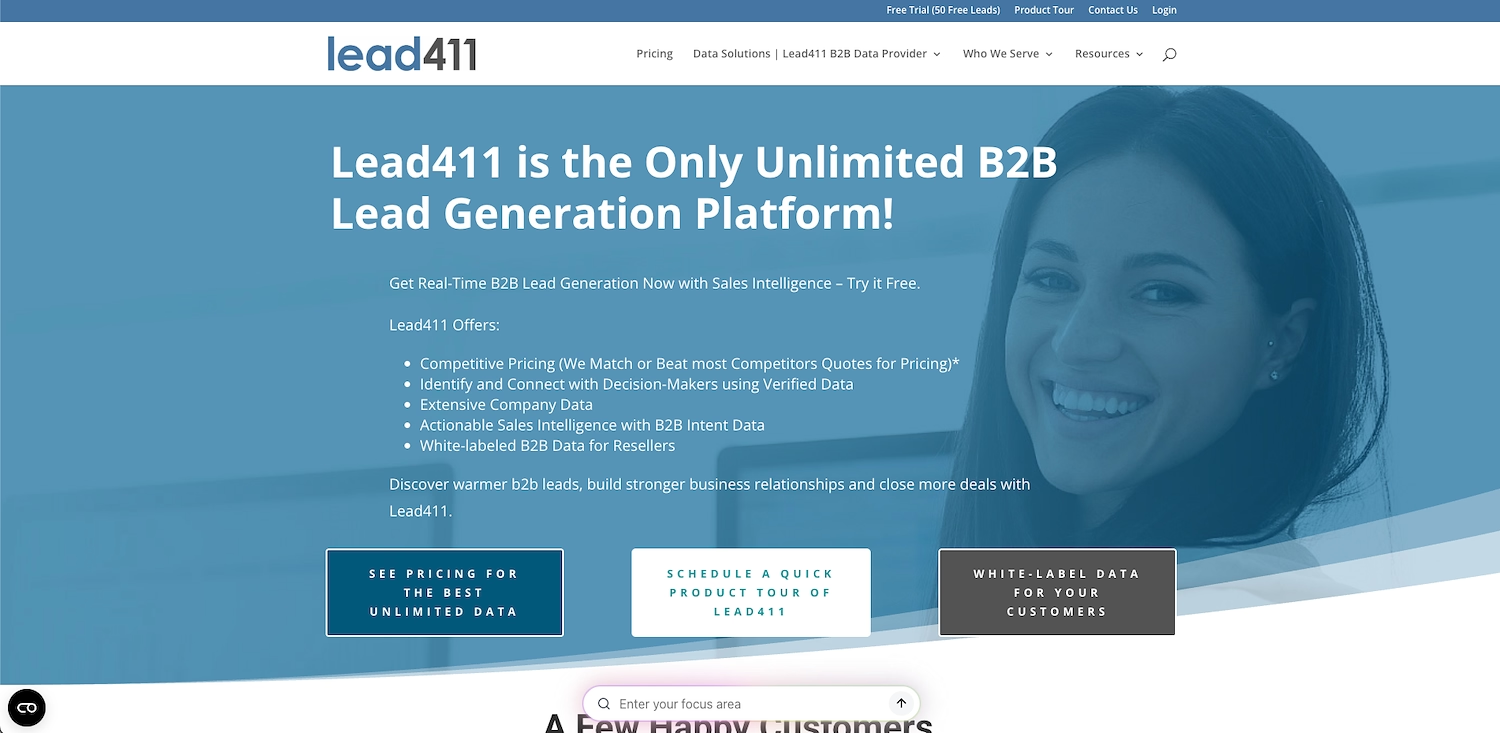
Lead411 is a B2B sales intelligence platform that provides contact and company data. Sales and marketing teams use the tool to find verified emails and direct phone numbers for prospects. It also offers buyer intent signals to help identify accounts that are actively in-market, which supports targeted outreach campaigns.
Lead411's Main Features
- Identifies companies in a buying cycle using growth intent signals and buyer intent data from Bombora.
- Provides sales intelligence triggers like recent funding, hiring plans, and IPO announcements.
- Includes a built-in email automation feature to create and send outreach campaigns directly from the platform.
- Offers data cleaning and enrichment to update records within an integrated CRM.
How Lead411 Compares To TaskDrive
Average Review score: 4.5/5 stars based on 466 G2 reviews.
- Lead411 uses buyer intent data from Bombora to find companies that are in a buying cycle. This is different from TaskDrive, which builds lists based on your defined criteria instead of live market signals.
- The platform provides sales intelligence triggers, such as recent funding or hiring plans, to identify timely opportunities. In comparison, TaskDrive delivers a static list that captures data at a single point in time.
- It includes a built-in email automation feature to send outreach campaigns directly from the platform. This differs from TaskDrive's service, which provides a lead list but requires your team to use separate tools for engagement.
- This tool offers data cleaning and enrichment to update records within an integrated CRM. TaskDrive, on the other hand, provides a data file for a one-time import, which requires manual management.
Lead411's Limitations Compared To TaskDrive
- Lead411 requires your team to perform all lead research using its platform. This contrasts with TaskDrive's managed service, which completes the research for you and delivers a finished list, freeing up your team's time.
- The platform relies on a large, automated database, and some users note it can contain outdated contacts. In contrast, TaskDrive's service model includes human verification for each project to ensure data is current upon delivery.
- Its automated system is built for broad data searches and may not suit highly niche projects. TaskDrive's personalized research service can build more specific lists for unique requirements that automated tools might miss.
Pricing and Value Comparison
TaskDrive provides custom quotes for its managed service. In contrast, Lead411 offers a self-service plan starting at $75 per seat monthly, providing a predictable cost for teams that handle their own research, while higher tiers require a custom quote.
Which TaskDrive Alternative Should You Choose?
Choosing the right TaskDrive alternative depends on your team's specific needs, budget, and workflow. This guide has detailed several options to help you compare features and make an informed decision based on your company's goals.
If you want to automate sales tasks, 11x offers a unified platform with digital workers. Its AI agents handle prospecting, outreach, and lead qualification, allowing your sales team to focus on closing deals and building relationships.




